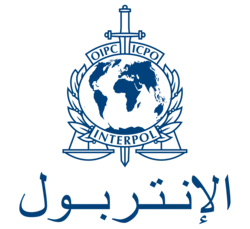VIENNA – Austria has become the first country to adopt the charter governing the automated use of and access to the database of DNA profiles at the INTERPOL General Secretariat. INTERPOL Secretary General Ronald K. Noble and Dr Herwig Haidinger, Director of the Bundeskriminalamt, formally signed the agreement on 22 April.
Of the 41 INTERPOL member countries with databases of DNA profiles, 29 now submit their data to INTERPOL. All member countries wishing to access INTERPOL's automated database, the software for which is being developed jointly by the General Secretariat and INTERPOL Vienna, must now also adopt the International DNA Gateway Charter.
The charter outlines the rules for the use of the database, called the DNA Gateway. It stipulates that, among other things, member countries retain ownership of their data, and control its use and access in accordance with their national laws.
Secretary General Noble applauded the signing of the agreement by Austria, which maintains the third largest DNA profile database in Europe after the United Kingdom and Germany.
'As the first country to adopt the charter, Austria recognises that INTERPOL's DNA data protection satisfies the highest of standards – standards which Austria helped INTERPOL to develop,' Secretary General Noble said.
When it is completed, member countries will be able to submit a search request to the DNA Gateway directly via I-24/7, INTERPOL's secure global police communications system. The DNA Gateway functions as an autonomous database, meaning it is not linked to INTERPOL's other databases, and submitted profiles do not contain any nominal information on individuals.
The new automated system called for more stringent privacy and security safeguards than the previous method, which was carried out manually at the General Secretariat in Lyon, France, said Werner Schuller, head of identification services at INTERPOL.
'The nature of DNA information requires a higher grade of protection, and automation requires an elevated level of security,' he said. 'This automated system marks the beginning of a new era in data exchange for INTERPOL.'
Dr Haidinger said the development of the automated database demonstrates the organization's commitment to fighting international crime.
'No single country can fight (all) crimes on its own. INTERPOL is connecting the police know-how of its member countries and working toward common security,' he said.



